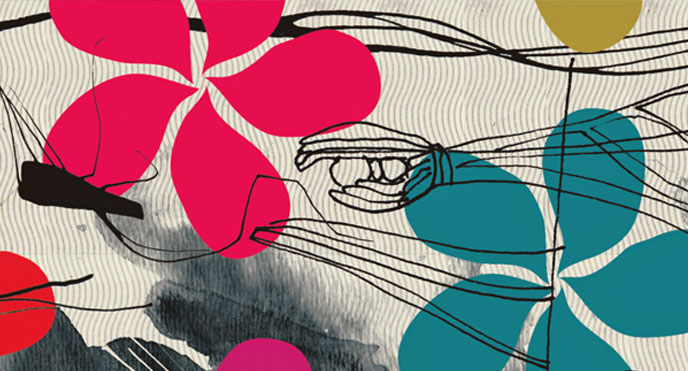From the impressive FSG Book of Twentieth-Century Latin American Poetry, it would have been easy to choose one of Jorge Luis Borges’s masterpieces without making a mistake. Particularly the one titled “Borges and I,” which interestingly has always been read either as a micro essay or as flash fiction in the Spanish language tradition. Or one of Pablo Neruda’s torrential, grandiloquent chants that make me swing between admiration and exhaustion. Or some of Alejandra Pizarnik’s dark meta-suicidal reflections, so full of pain and precision—insofar as such thing is possible, it is done in poetry. Or one of Nicanor Parra’s small, funny, terrorist attacks on lyrical seriousness. Or perhaps some wonder from one of the most moving, yet at the same time most daring and most political Spanish poets ever born: César Vallejo. But I finally end up with the rare Roberto Juarróz—someone often able to turn a feeling into a concept and, more importantly, vice versa. Although Juarróz’s only poem included in this anthology isn’t quite my favorite of his, I would be greatly pleased if just one person ran and searched for more from him after reading this.
—Andrés Neuman
If We Knew the Point
If we knew the point
where something is going to break,
where the thread of kisses will be cut,
where a look will no longer meet another,
where the heart will leap toward another place,
we could all put another point on that point
or at least go with it to its breaking.
If we knew the point
where something is going to melt into something,
where the desert will meet the rain,
where the embrace will touch life itself,
where my death will come closer to yours,
we could unwind that point like a streamer,
or at least sing it till we died.
If we knew the point
where something will always be something,
where the bone will not forget the flesh,
where the fountain is mother to another fountain,
where the past will never be past,
we could leave that point and erase all the others,
or at least keep it in a safer place.
(To Laura)
Roberto Juarróz (1925–1995) was an Argentine poet famous for his “Poesía vertical” (Vertical poetry).
Andrés Neuman was born in 1977 in Buenos Aires, Argentina, and grew up in Spain. He is the author of a number of novels, including most recently Talking to Ourselves. He was selected as one of Granta’s Best of Young Spanish-Language Novelists and was elected to the Bogotá39 list. His novel Traveler of the Century (FSG, 2012) was the winner of the Alfaguara Prize and the National Critics Prize, Spain’s two most prestigious literary awards, as well as of a special commendation from the jury of the Independent Foreign Fiction Prize. Neuman has taught Latin American literature at the University of Granada.
Read all of our Poetry Month coverage here

